The ongoing District Development Council (DDC) election is adding around 100 new females to the power set-up in Jammu and Kashmir. Right now when some are reluctant participants, there is a huge number that is excited over the empowerment, reports Saima Bhat
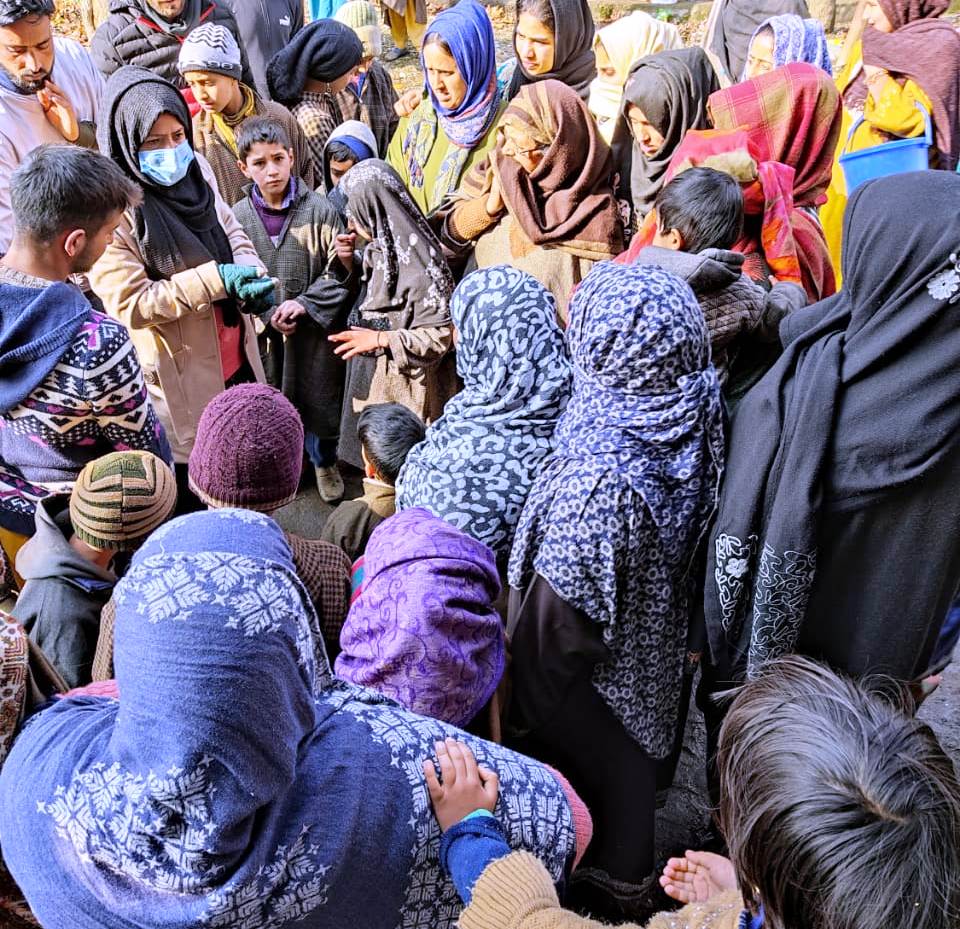
Away from their families since the day they stepped in Kashmir, around 350 women from Pakistan are facing multiple issues. These wives of former militants lament they have “no place to call home”.
They had come to Kashmir from Pakistan and Pakistan administered Kashmir as part of the “rehabilitation policy” announced in 2010 by Omar Abdullah government for youth who had the Line of Control (LoC) between 1989 and 2009.
From Muzzafarabad
Somiya Sadaf, originally a resident of Muzaffarabad in Pak, is one among them. She came to Kashmir after marrying a local militant from Batargam (Kupwara). She is now a candidate in the ongoing District Development Council polls. Her Drugmulla segment, a woman reserved seat, polled in the fifth phase. During the campaigning, she had a set schedule to follow. Starting from dawn and continuing even after dusk, she would visit people in her village, interacts and talks about development issues facing them. She was so busy campaigning that she could talk to Kashmir Life only around mid-night.
Living with her husband and four children, she is the only one among the almost 350 Pakistani women who is trying her luck with the ballot. But she is not the first one. Earlier in 2018, two women from PaK, Arifa, and Dilshada, married to former militants had won panchayat posts from Khumriyal and Mawar villages of north Kashmir respectively. As per the reports, in last years’ sarpanch and panch elections, at least five females who belonged to another side of Kashmir participated in the process and were elected.
An entrepreneur by choice, elections, she said, was a decision taken by her in consultation with her people. She said, her nomination form was filed only after her colleagues requested her to do so and promised to vote for her. “I couldn’t say no to them because they were the people who helped me to establish my business.”
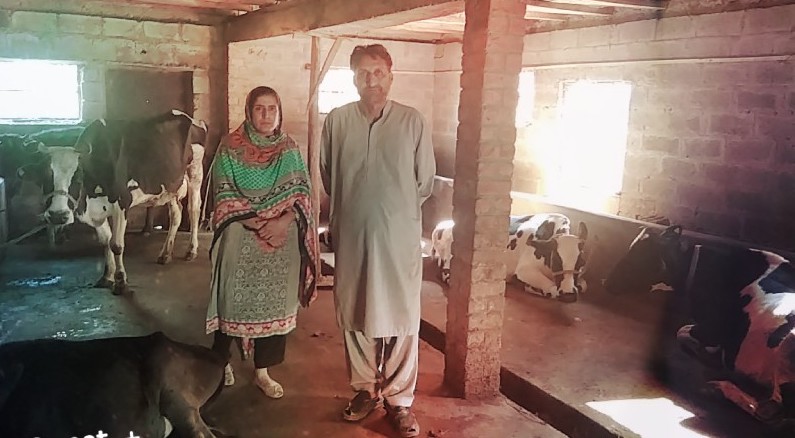
“Four years ago when I represented our Self Help Group (SHG), a group of around 10,000 women, and spoke on a video link with the Prime Minister of India, Narendra Modi, my colleagues thought I have the potential to speak and represent them. Being a part of Pakistani brides in Kashmir, my videos and pictures have always gone viral on social media, which indicates people support me,” she added.
A strong face of the Umeed scheme (State Rural Livelihood Mission – SRLM) in Kupwara and a beneficiary of various central and local government-run financial schemes, Sadaf is running at least five business ventures jointly with her husband. She said at present there are 14 dairy farms in her district but she was the first to start some six years ago. Later on, she added a poultry farm, a knitting centre, and a school canteen.
A known face in the district, Sadaf claims to have come under a “peace process initiative with a message of peace”, and has actively participated in the public outreach programmes of various government-run schemes.
“All organisations invite me for awareness programs, be it KVIB, J&K Grameen Bank, or any Central or local government, where I share business ideas, how to start a business with minimum resources. I don’t want women should sit idle in their homes. They should walk shoulder to shoulder with men,” she said. “This participation has won me many accolades. BB Vyas, Atal Dullo, Asgar Samoon like personalities have come to my home and appreciated my work.”
If elected, she said there are many firsts to be taken care of.
“I have to eradicate poverty from my area. I’ll get an opportunity to raise my voice for my Pakistani sisters and ask the government why the promises which were made when they got us back were not fulfilled,” she said. She hopes to win in an 11-member contest in which she has far stronger candidates.
A New Generation
Sadaf, however, is not the only instance of women fighting on a turf usually held and dominated by men. The DDC elections which started from November 28 and are being held in eight phases will eventually lead 100 women to be a part of 28 newly formed councils comprising a total of 280 members across Jammu and Kashmir. Five seats are reserved for women in every DDC, which includes 23 women specific SC and ST berths as well.
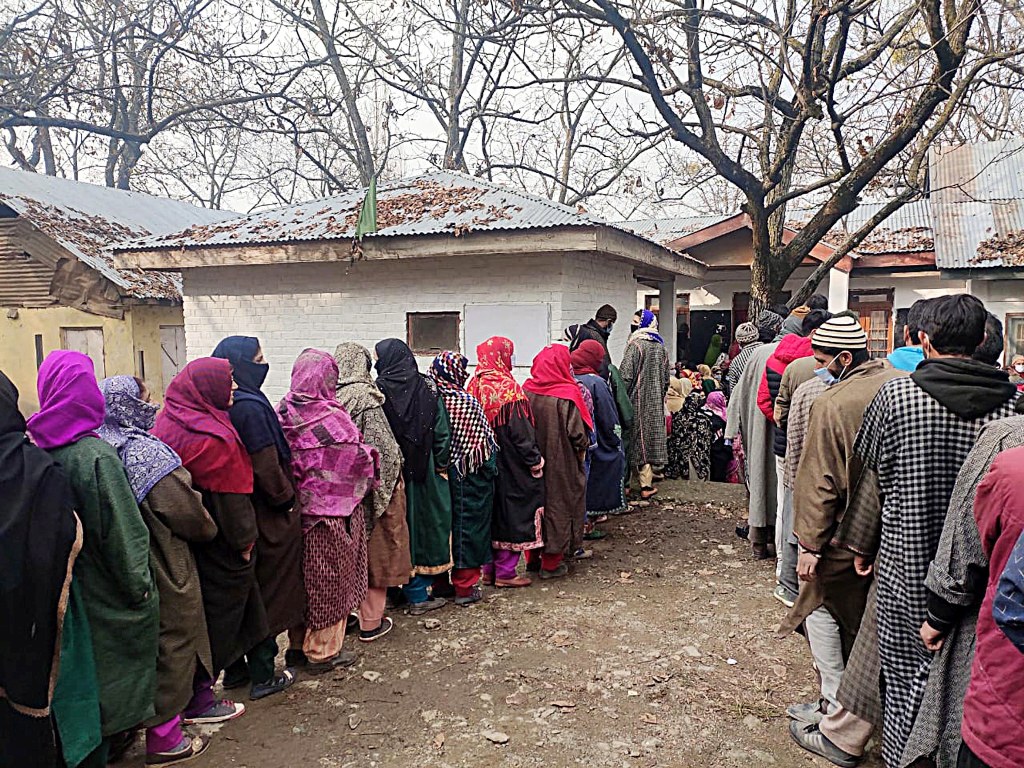
Emerging as stakeholders in politics and political change at grassroots levels, the women participation is significant this time around. Kupwara’s five women reserved seats indicate the trend – Kralpora had 10 women contestants; Qadirabad had 15; Ramhal has six; Tangdar had 13.
This trend existed almost in all the districts. The nominations in south Kashmir, however, were far and few between. Unlike the north, where a lot of many females contested on party symbols including BJP, in south Kashmir, they were mostly independent.
Women Empowerment
It was on October 24, when the Jammu and Kashmir administration amended the Panchayati Raj rules, making provision for reservation for Scheduled Castes, Scheduled Tribes, and women in the district development councils.
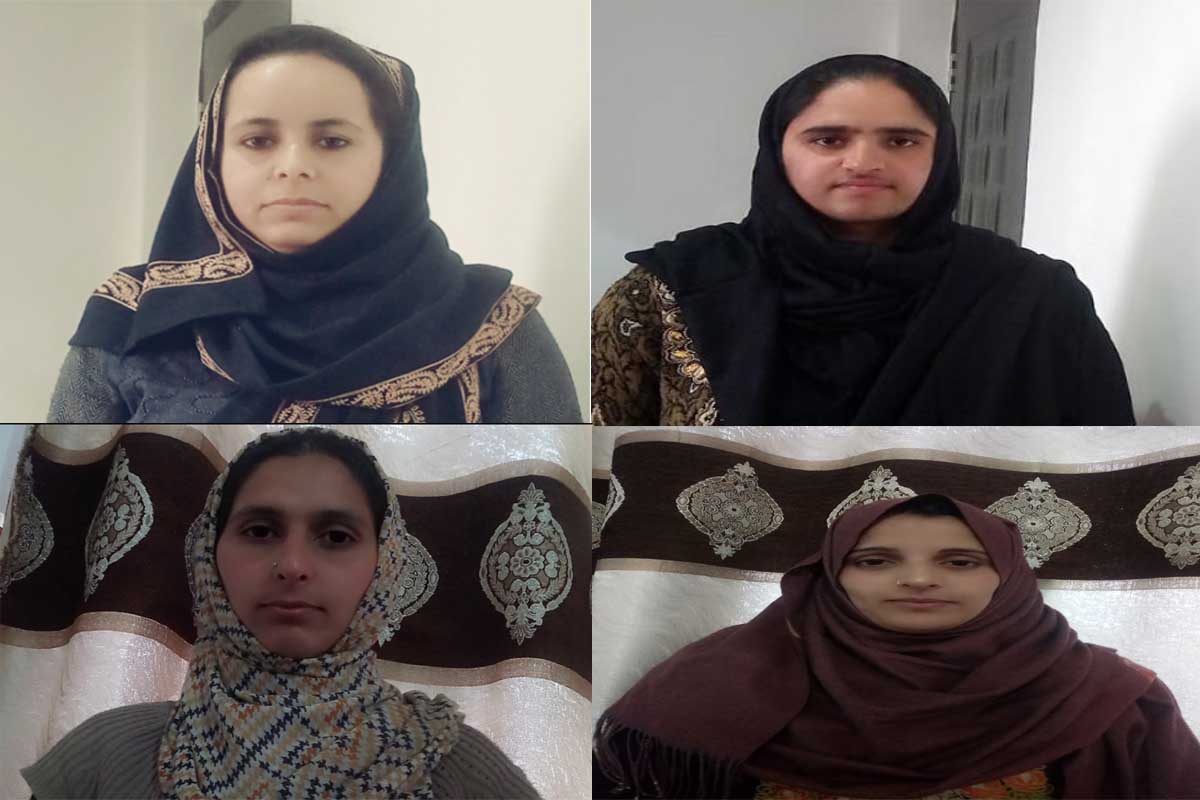
But the NC’s powerful female face and former cabinet minister, Sakina Itoo rejects the claims that this is the first time women are getting a reservation. Sakina, daughter of a former speaker who has represented her Noorabad constituency in south Kashmir twice in the erstwhile state assembly in 1996 and 2008, said: “It is not for the first time that women have been given such type of reservations. It was our government, our member Ali Muhammad Sagar who has kept these reserved seats for women in panch and sarpanch constituencies.” She added that the DDC’s have been added recently to the three-tier system of the Panchayat Raj system, which has now become a four-tier system.
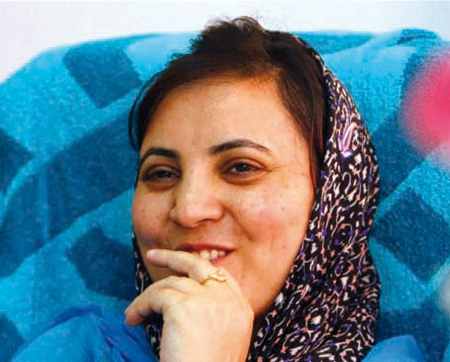
She, however, decried the timing of elections. She said the decision was taken in haste. “The voice of people has been muzzled for the last two years. The government all of a sudden came with the decision of having elections in winters. I wish the elections would have been conducted in another season so that we could have been able to visit the constituencies and do proper campaigning of our candidates,” Sakina said. “Maybe they might have thought regional parties won’t contest this time as in 2018. But when we decided to participate they got frustrated.”
She alleged that in the garb of security, their candidates were “harassed.” Our candidates are asked for permission to visit their constituencies. They are given permission but for two hours only. But the candidates belonging to the Apni Party and BJP are given security and allowed to go for public rallies whenever they wish to,” Sakina said adding that she belongs to Z-security but is given step-motherly treatment.
NC’s urban female face, Shameema Firdous who represented Srinagar’s Habba Kadal constituency in assembly expressed happiness over the women participation. Shameema, who also headed the Women’s Commission in Kashmir, sees it as the “women empowerment.”
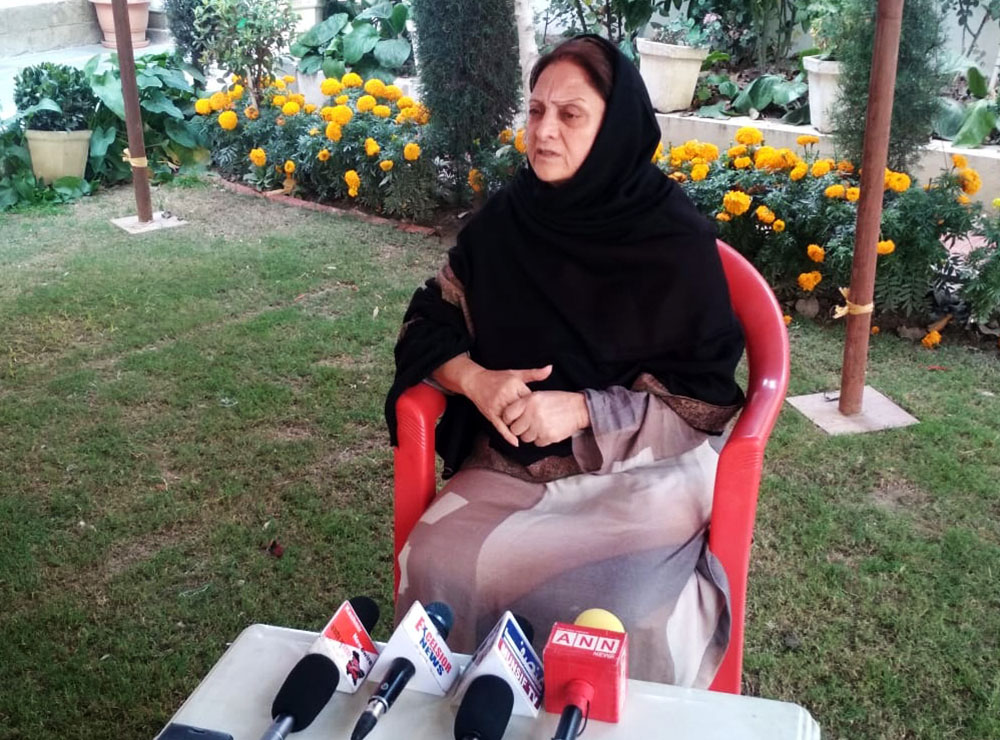
Busy in campaigning in Poonch and Rajouri, Shameema said: “These female contestants are very happy after filing their nominations. I also feel proud when I see females coming to power. If given the promised amount for the development, they will work tirelessly.”
Reluctant South
South Kashmir, however, is cool to the idea. In the volatile district of Kulgam five seats: Manzgam (ST), DH Pora, Kulgam A, Behibagh, and Qaimoh A, have been identified as women exclusive seats.
Interestingly, Manzgam saw, for the first time, some electoral activity among women. Four women were in the fray including one from PAGD candidate and the rest were independents.
Surprisingly, however, none of the four was able to talk personally to the people whom they desire to represent. “They are under security cover at a safer place for around 20 days now,” said a relative of one of the contestant. In their absence, families campaigned on their behalf.
On DH Pora’s seat, there were three nominations. Hajira, one of them, is the wife of Abdul Majeed Padder, the erstwhile PDP lawmaker who is now with the Apni Party, Shazia Jan, daughter of an NC worker represented PAGD and Shazia Yusuf contested independently. At Kulgam A constituency, only 6 women have filed their nominations. Same participation trend was witnessed at Qaimoh A and Behibagh constituencies which are also women reserved seats.
Seniors Say
In politics for the last three decades now, Sakina, who is known for her grass-roots connections, is happy that more women are participating in the election. “I believe women are more honest and dedicated to their work,” she said. “We have been living with militancy for the last three decades now. Either the parents were reluctant to send their daughters into politics or if they would send, the people would not vote for them”.
The women politicians, Sakina said, would be brought to elected institutions as nominated members, not as elected ones. But this time she is hopeful more women will be taking part in the development process “if at all there will be any”. Sakina has been the youngest cabinet minister in Jammu and Kashmir.
Alleging that there was no development on the ground, she said, “We had sarpanch and panch elections in 2018 but since then we haven’t seen any kind of development, not even roads are properly constructed”.
Sakina added that the last time due to the boycott by the NC and the PDP, the BJP got their people elected as panches and sarpanches.
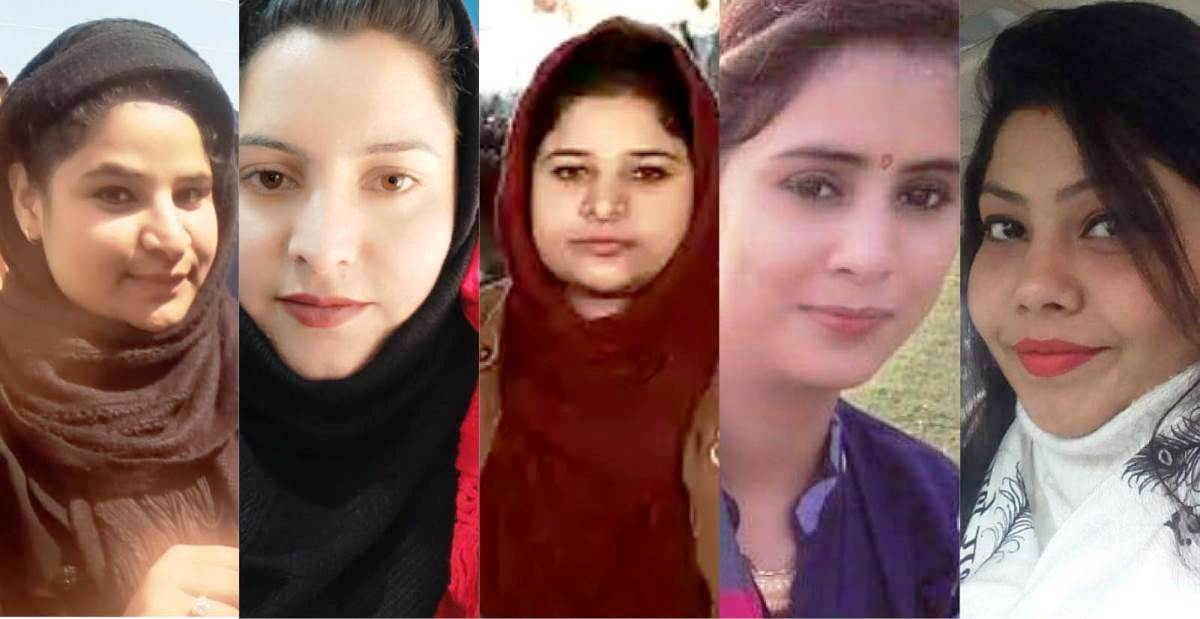
“I am a witness that many BDCs were given to single families where the male member, his wife, sister, or daughter had filed the nominations and won the seats without facing any contest. One BDC represents 40 villages so it should not have happened,” she said.
Talking about the essence of democracy, Sakina said the chance to represent people should be given to everybody. “I am personally against the dominance of a single-family,” she said.
Offering her family’s instance, she said that although people suggested to her to give the ticket of the DDC to her sister, she refused.
“We are here to represent people. So when there is a chance of having representations from these people so I would love to give them a chance. When we heard of reservation for ST in Kulgam, I took personal interest and found one educated girl, whom we are supporting now,” she said.
But Shamima was not sure about the participation of women. “Maybe some of these women have been used by the BJP as a trump card. It is a party of goons and they can go to the extent to stay in power,” she said.
Independent Crowds
Meanwhile, in Achgooze (ST) constituency of Pulwama, another sensitive district of south Kashmir, Mansha Begum, a mother of four children has filed her nomination. An illiterate, she has been fielded by the Congress party. Though, she claims no affiliation with the party in the past. “It was recently that one Ashiq Sahab from Srinagar came to us and asked me if I was interested in filing the nomination form on their party ticket. I accepted,” she said.
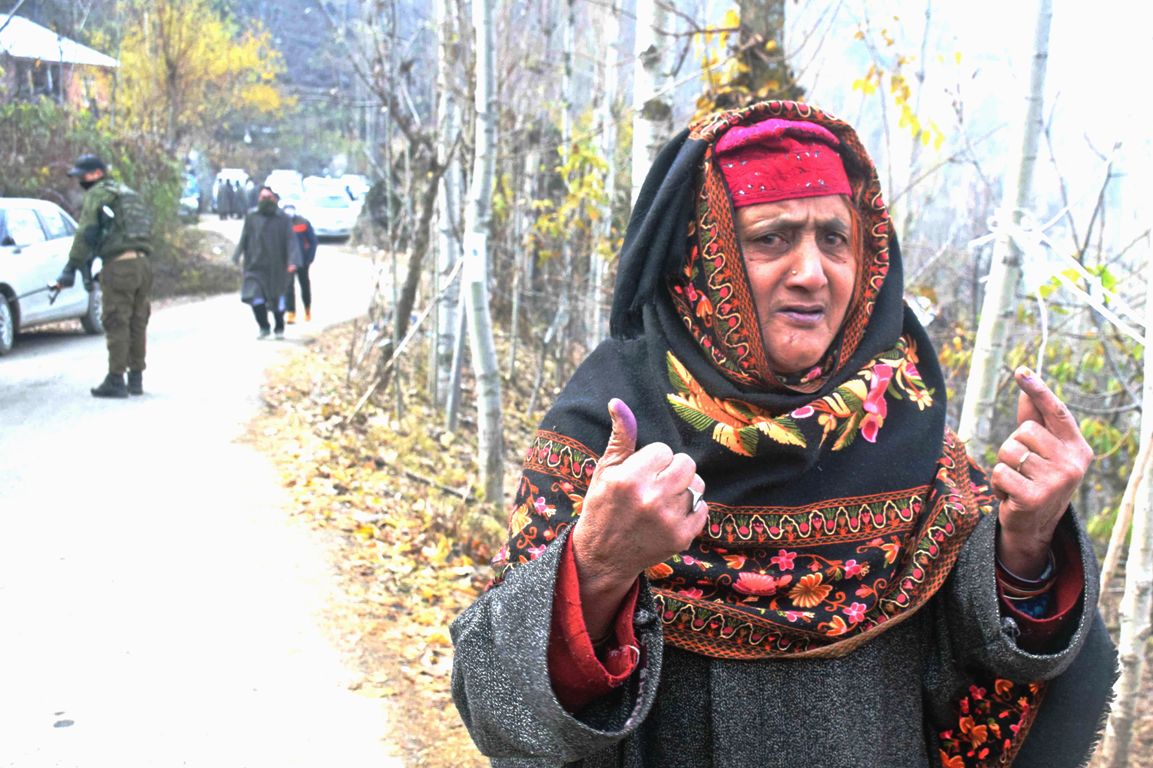
Planning to eradicate the poverty of her area, Mansha’s husband Muhammad Ismail Gorsi is a farmer and owns around 7 kanals of orchards. “We are very poor people. We just want our voice should be heard. Militancy is there but I have nothing to do with them. They also know we are poor people. I am not afraid,” he said.
Able to hold three rallies for her candidature, she is hopeful of a win as has been promised by her friends and relatives. She is fighting two other candidates, independents, both unknown. One candidate from Apni Party withdrew her nomination.
A district official said that in Shopian district, Chitragam, Imamsahib I, Kaprin, Ramnagri, and Zainapora I, are women reserved seats. While in Anantnag district, Achabal, Breng, Khoveripora, Larnoo (ST), and Shangus are meant only for women contestants.
In Shangus, only four women have filed their nominations. This micro constituency, which otherwise is a Congress stronghold, has made the DDC election very interesting. One element to the contest was added by the literal ‘adoption’ of an independent by the PAGD after the Congress-backed out of the alliance.
Among the contestants, Salma Lateef of Brari Angan, lacks any political background and is out in the field as an independent candidate. Presently pursuing an MBA degree through IGNOU, she was supported by the PAGD after the Congress party backed out of the alliance. She claims the NC gave her the mandate even though she continues to be an independent technically. On the ground, neither of the PAGD constituents have rejected or questioned her claim.
Another candidate in the constituency is Sabahat Gulzar. Daughter of former Congress lawmaker Gulzar Ahmad Wani and a resident of Chittergul Shangus, she is presently pursuing LLB from the University of Kashmir.
The third candidate Rozey Jan, wife of Abdul Hameed Reshi, a resident of Nagenaren, is a graduate of Government women’s college Anantnag. Her husband is a BJP sarpanch, but she has filed her nomination as an independent candidate. Besides, there are two more candidates -Mubeena Begum is contesting as an Apni Party mandate, and Sabreena Mushtaq is an Independent candidate. The campaigning, however, in this politically sensitive constituency remained low-profile with the candidates preferring to convince their voters at their homes.
Hailing from Tangmarg Aharbal, Jameela Akhter of the NC has been given a mandate by the PAGD. She has a bachelor’s degree in science and has also done her B-Ed. She is currently pursuing her Masters in Arts through the IGNOU. Her father has been an NC supporter for years and believes that loyalty towards his political party prompted him to make his daughter file the nomination.
“The party has seen a lot of ups and downs but I never left the party”, said the father Sobia Paswal. “When the party asked me to find an educated female candidate from my area. I couldn’t find one and then my daughter was my only choice.”
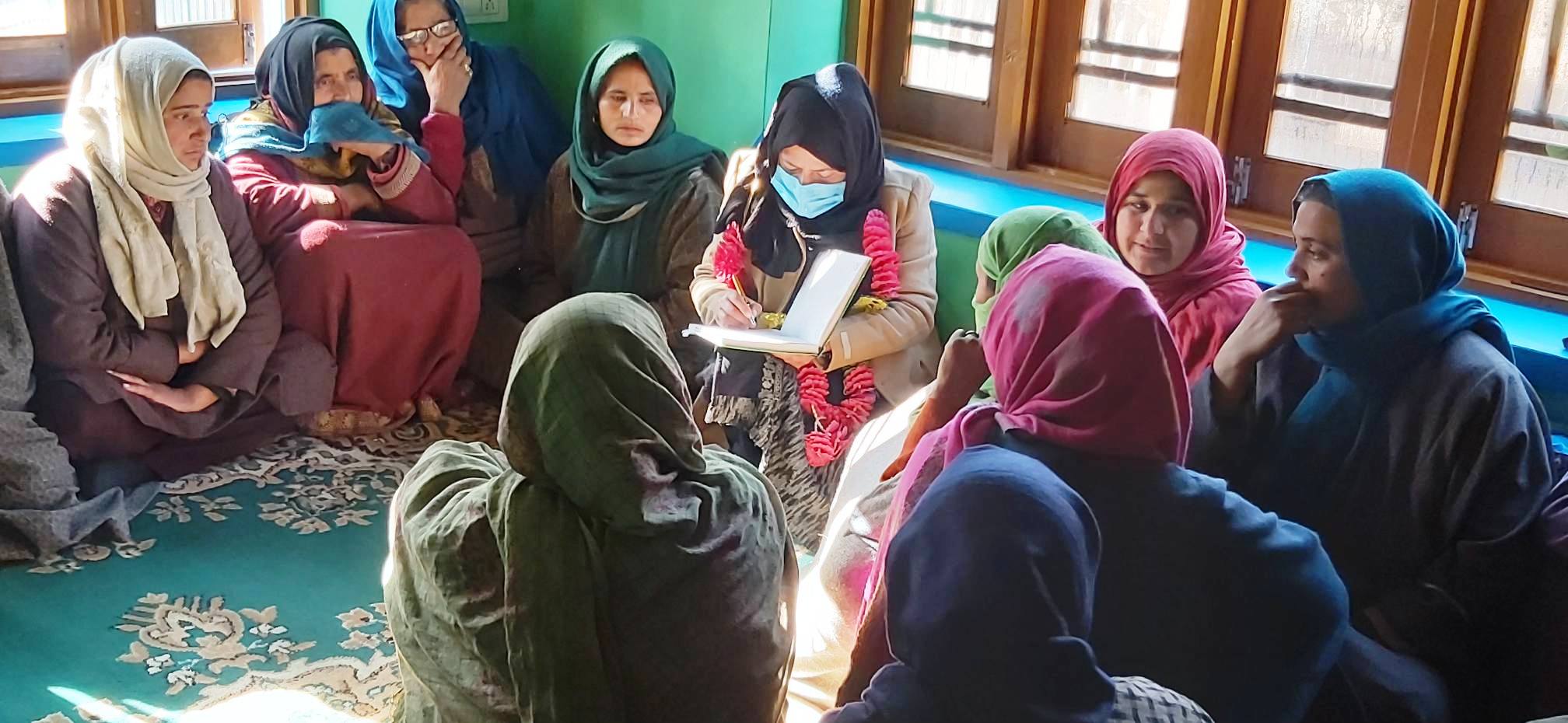
The other candidate is Rubeena Akhter. She is contesting independently. A resident of Avil Gujjar Basti Manzgam, Akhter is a housewife and has done her schooling till twelfth class. Shaziya Akhter, another independent candidate from Halan Manzgam, is a school dropout. The third independent candidate is Shaheena Akhter is the wife of a local Village Level worker (VLW).
Panchayat Refills
In Budgam, a family of seven members has decided to enter the electoral fray. Hailing from Kanihama village, they have filed their nominations as candidates. The family represents the PDP. Interestingly, the mother in the family, 70-year-old Fatima Banoo along with her younger daughter-in-law are fighting for a panch seat, leaving the seat of sarpanch to her elder daughter-in-law, Shabnum.
Besides the three females, father Muhammad Ramzan Sheikh along with his three sons is fighting for a panch seat.
Pertinently, the present elections are being held for the vacant seats of panch and sarpanch, which could not be filled in the 2018 elections.
As per official data, 11,500 seats for the post of panch and 890 for sarpanch are vacant in Kashmir, and 185 seats for panch and 124 for sarpanch are vacant in the Jammu division out of a total 33592 panch and 4290 sarpanch seats.
“These seats remained vacant either because the areas were highly volatile or the elected people resigned due to fear or some members were dead,” said an insider adding that in the last elections regional parties including NC and PDP boycotted the elections, which also became the reason that Kashmir witnessed a low turnout. Out of the present vacant seats, according to state election commissioner KK Sharma, as many as 804 sarpanchs and panchs were elected unopposed ahead of the panchayat by-polls that included 768 panchs and 36 sarpanchs.
The polls are being held in eight phases till December 19. The counting will be held on December 22.















